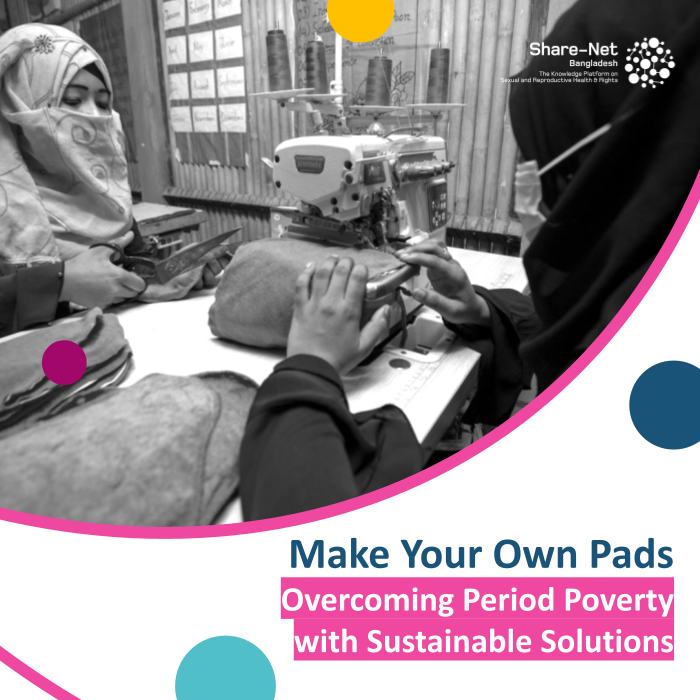Make Your Own Pads: Overcoming Period Poverty with Sustainable Solutions
“Over 50% of women in coastal areas suffer from pre-cervical cancer symptoms due to poor menstrual practices,” reveals a 2020 report from Bangabandhu Sheikh Mujib Medical University Hospital. Despite efforts by large conglomerates and innovative solutions, the use of sanitary products remains worryingly low in Bangladesh, especially in rural areas.
Sumita Rani Saha, a 14-year-old from Chila Union of Mongla, Bagerhat, represents many young girls facing period poverty. “I have only used two of the ten pads I received from a non-profit organization, saving the rest for important days,” she shared. Her story highlights the stark reality of menstrual hygiene management (MHM) in Bangladesh. Sumita’s family, like many in her community, rely on discarded clothes during menstruation, a practice linked to severe health issues.
Despite the presence of major brands like Square Toiletries and ACI, and the availability of affordable sanitary pads like Femina, priced at Tk45 for eight pads, usage remains low. “The main reason is taboo and lack of awareness,” said Dr. Jesmin Zaman, Head of Marketing at Square Toiletries Limited. Even with free distribution projects, many girls refuse to use sanitary pads due to embarrassment and societal stigma.
The Bangladesh National Hygiene Baseline Survey in 2014 showed that only 10% of the female population used sanitary napkins, which slightly increased to 29% by 2018. However, 77% of Bangladeshi women still lack access to proper menstrual materials, according to a World Bank study.
This period poverty issue intertwines with several Sustainable Development Goals (SDGs). SDG 3, Good Health and Well-being, aims to ensure healthy lives and promote well-being for all at all ages. Poor menstrual hygiene practices contribute to infections, infertility, and cervical cancer, undermining this goal. Additionally, SDG 5, Gender Equality, emphasizes the need for equal access to health services, including menstrual hygiene products. The taboo and stigma around menstruation perpetuate gender inequalities, affecting girls’ education and women’s economic opportunities.
Addressing this issue requires sustainable and innovative solutions. Menstrual cups, though initially costly, offer a long-term and affordable alternative. “If maintained properly, a cup can be used for eight to ten years,” explained Nahid Akther from CIPRB. Despite high import taxes, these cups provide a more economical option in the long run.
Non-profit organizations are also promoting reusable pads. Shaathi Bangladesh Ltd. empowers women by teaching them to make washable pads, providing both a livelihood and a sustainable menstrual solution. “We have provided reusable pads to 25,000 women and girls, promoting long-term health benefits and environmental sustainability,” said Mifrah Zahir, founder of Shaathi.
Education plays a crucial role in overcoming these challenges. “Proper education is needed not just for women, but also for the male members of their families,” stressed Dr. Zaman. Awareness campaigns and school programs are essential to break the taboo and encourage the use of sanitary products.
On World Menstrual Hygiene Day, it’s vital to acknowledge the intersection of menstrual health and sustainable development. Improving access to sanitary products, promoting reusable alternatives, and raising awareness can significantly impact health, gender equality, and economic empowerment. Addressing period poverty is not just a health issue but a step towards achieving several SDGs, ensuring a healthier and more equitable future for all women and girls in Bangladesh.
Source: The Business Standard
Source Contributor: Kaniz Supriya
Picture Source: TBS News


